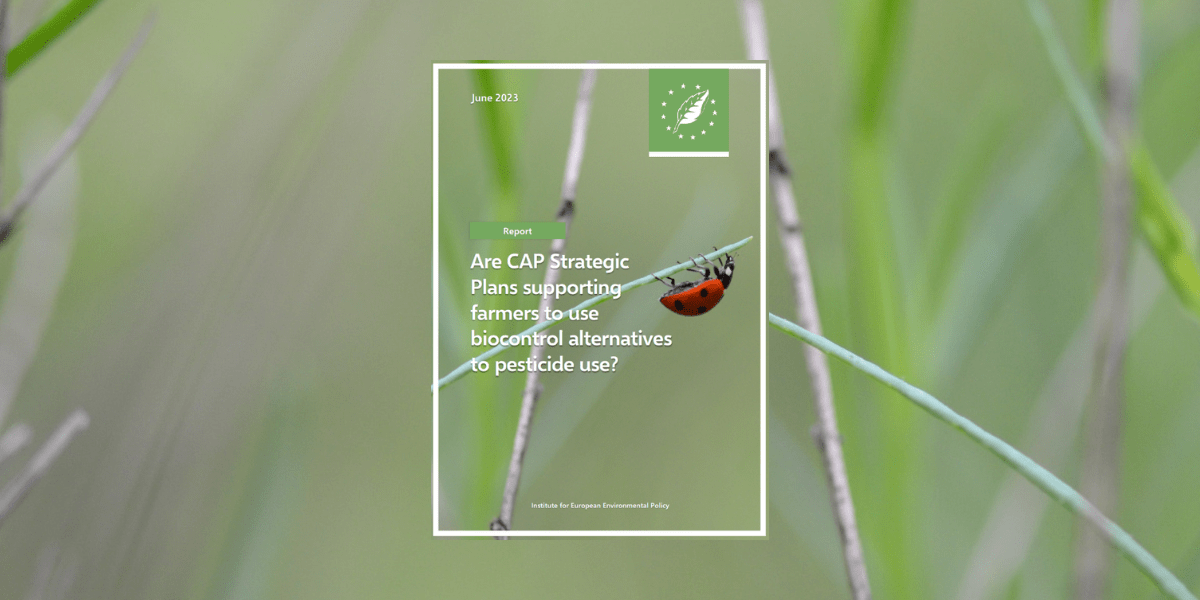AUTHORS: Zuzana Lukacova and Evelyn Underwood
This report reviewed seven national CAP Strategic Plans to see whether and to what extent the planned interventions support biological control and Integrated Pest Management.
Biological control applies a holistic approach to crop protection that considers the ecosystem health of the whole farm, pest and predator behaviour and life cycles, in contrast to the use of conventional chemical pesticides. Biocontrol practices can be regarded as a fundamental component of integrated pest management (IPM), integrated production (IP), and organic farming. These approaches are key to achieving the EU’s pesticide use reduction objective of the proposed Sustainable Use of Pesticides Regulation (SUR), the Farm to Fork strategy, and the EU Biodiversity Strategy 2030.
The use of biocontrol is increasing in a range of farming systems in the EU, but it is still at a very small scale compared to conventional pesticide use. Barriers to increasing use of biocontrol include lack of knowledge about biocontrol agents and practices; high costs for growers where the use of biocontrol agents is not subsidised (for example through CAP support), and the possible lower efficacy compared to chemical pesticides if biocontrol is not used in an IPM system.
The Common Agricultural Policy (CAP) remains the biggest source of EU funding and the uptake of biocontrol practices strongly depends on the national level implementation and individual ambitions of Member States in their CAP Strategic Plans for the 2023 to 2027 period. This report reviewed national CAP Strategic Plans for France, Germany, Denmark, Austria, Poland, Spain and the Netherlands with regards to their support for biocontrol practices. It analysed whether and to what extent each of the CAP interventions features aspects that support biocontrol and/or IPM.
In the report we provide recommendations on how the Strategic Plans should be adjusted to support and promote higher biocontrol uptake by farmers. In particular:
- Support targeted advisory services and knowledge exchange between farmers. Farmer to farmer exchanges, peer review networks, and researcher-farmer exchanges.
- Support investments in specific techniques. Investments in biocontrol techniques through investment support and through sectoral interventions.
- Provide support for specific biocontrol practices within more general support for pesticide reduction. Targeted support to various biocontrol practices depending on the specific farming system.
- Include clear and strong incentives to learn and progress in the transition to biocontrol and IPM. Inclusion of longer-term support, easy access to advice and knowledge exchange.
- Ensure attractive benefits attached to certification schemes linked to biocontrol practices. Reimbursement of cost incurred to comply with the higher standards and the process of obtaining the certificate, promotion of certification schemes amongst consumers, strict monitoring and enforcement requirements, clear incentives to continue biocontrol over the long-term.
- Focus on providing support to longer term transition and provide support for innovation and pilots. Interventions focused on multiple year support, access to advice and innovation and research results, pilot projects developing innovative practices and new approaches.
Photo by Charlotte Descamps on Unsplash


